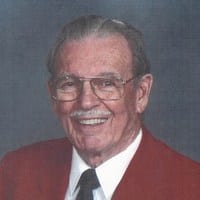Last week during TAA’s bi-weekly #AcWriChat TweetChat event on Twitter, we discussed how to edit your academic writing for proper format and quality presentation. Included in the discussion were the three common style guides (APA, MLA, and Chicago), common practices and mistakes, and the effect of poor formatting and presentation on credibility of the work. We also discussed how to evaluate flow and what elements of consistency should be evaluated during the editing process.
Most useful textbook and academic posts of the week: April 24, 2020
In these times of uncertainty, it is common to experience confusion, seek knowledge, and wish for better days ahead, but as Johann Wolfgang von Goethe once said, “Knowing is not enough; we must apply. Wishing is not enough; we must do.”
This week’s collection of articles from around the web includes information on copyright and creative commons, online methods of research, social media streaming, finding a flow in a COVID infected world, building an academic community, and collecting qualitative data online. Perhaps one or more of these have been things you knew about or wished to learn more about.
But knowing and wishing is not enough. What you do with these and other ideas in our changing world is what determines the future you will create. Happy writing!
Mervin (Mike) L. Keedy Obituary
In March, 2020, we received notice from Nathan Keedy that TAA’s founding member, Mike Keedy, had passed away, just shy of his 100th birthday. Nathan provided his father’s obituary, which we share below, with an expanded section related to Mike’s TAA activities.
Mervin (Mike) L. Keedy Obituary
 Dr. Mervin (Mike) Keedy died peacefully at home with his family on March 14. As a math professor it is fitting that he died on pi day, 3.14. Dr. Keedy was born (the oldest of 3 sons) on August 2, 1920 on a farm in western Nebraska of parents: Albert L. Keedy, Jr. and Iva Barney Keedy.
Dr. Mervin (Mike) Keedy died peacefully at home with his family on March 14. As a math professor it is fitting that he died on pi day, 3.14. Dr. Keedy was born (the oldest of 3 sons) on August 2, 1920 on a farm in western Nebraska of parents: Albert L. Keedy, Jr. and Iva Barney Keedy.
Overcoming the five factors that complicate peer collaboration
In her most recent webinar, “Practical Strategies for Collaborating with Peers”, Janet Salmons shared her experience in collaborative projects telling the audience, “Collaboration with peers is different from collaboration with a peer. It’s complicated.” The larger the group, the more complicated the factors affecting collaboration become.
Member Spotlight: Talya N. Bauer
TAA member Talya N. Bauer is a Cameron Professor of Management at Portland State University and is a textbook author in the management writing discipline.
Her most recent publications are Fundamentals of Human Resource Management: People, Data, and Analytics; Human Resource Management: People, Data, and Analytics; Organizational Behavior: Bridging Science and Practice; Essentials of Organizational Behavior: Bridging Science and Practice; and Psychology and Work: Introduction to Industrial and Organizational Psychology.
Special Features of TAA Award-Winning Textbooks: From the 2019 Awardees
At the 32nd Annual Textbook & Academic Authoring Conference in Philadelphia, PA, TAA members Al Trujillo and Dave Dillon hosted a panel of textbook award-winning authors to share features that they considered instrumental in the success of their books.
The panel consisted of Jocelyn Nelson, author of Gateway to Music: An Introduction to American Vernacular, Western Art, and World Musical Traditions, 1st Edition, Frank Carrano and Timothy Henry, co-authors of Data Structures and Abstractions with Java, 5th Edition, and Monica Sherwin and Dave Hall, co-authors of two winning titles, Oklahoma Studies Weekly – Our State, 6th Edition and New Mexico Studies Weekly – Our State, 1st Edition. Below is a summary of the textbook features they felt were most significant in the achievement of their 2019 Textbook Excellence awards.






